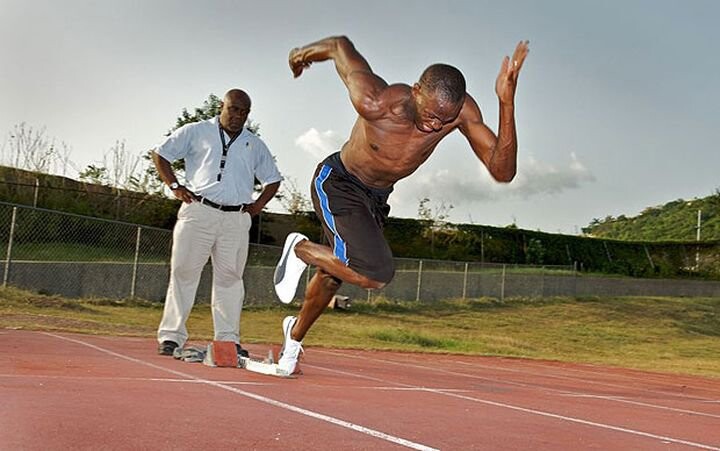Running News Daily
Running News Daily is edited by Bob Anderson. Send your news items to bob@mybestruns.com Advertising opportunities available. Train the Kenyan Way at KATA Kenya and Portugal owned and operated by Bob Anderson. Be sure to catch our movie A Long Run the movie KATA Running Camps and KATA Potato Farms - 31 now open in Kenya! https://kata.ke/
Index to Daily Posts · Sign Up For Updates · Run The World Feed
Unlock your jet-plane speed potential with a simple mental trick
The secret to picking up the pace when you’re tired and nearing the end of a race might be as simple as using a language cue, according to a study by Dr. Jason Moran, a sport and exercise scientist from the University of Essex, as reported by the BBC.
“Run like a plane taking off”
Conducted at Tottenham Hotspur’s (soccer) youth academy, the study focused on 20 players aged 14 to 15 and explored the impact of different motivational directions during sprint training.

The surprising revelation was that positive analogies emphasizing the environment could boost performance by up to three per cent. Instead of instructing athletes to “extend your hips” or “drive your legs into the ground,” Moran recommended phrases like “run like a plane taking off” or “jump like the floor is lava.”
Moran’s insights suggest that directing attention away from the body toward the surroundings can enhance performance. “[When] they start to focus on their body, there’s a risk that you turn what should be an automatic process–something that’s done without thinking–into a non-automatic process,” explained Moran. He says that asking a player to “accelerate like a Ferrari” may create a more powerful mental cue for them, rather than simply telling them to run fast.”

Emphasis on “running toward”
Interestingly, the study found that phrases like “sprint like you’re being chased up a hill” were less effective than encouraging players to run toward something. This shift in focus led to a remarkable three per cent improvement in sprinting speed over a 20-metre distance. “The words we speak to athletes have a demonstrable and instant effect on their performance,” Moran told ScienceDaily.
While three per cent may seem small, Moran emphasized its significance, because the improvement was “instantaneous.” The study, published in the Journal of Sports Scientists, is a promising glimpse into the potential power of motivational analogies. However, with such a small sample size, further research is needed to validate the effectiveness of these phrases across diverse athlete populations.
by Keeley Milne
Login to leave a comment




